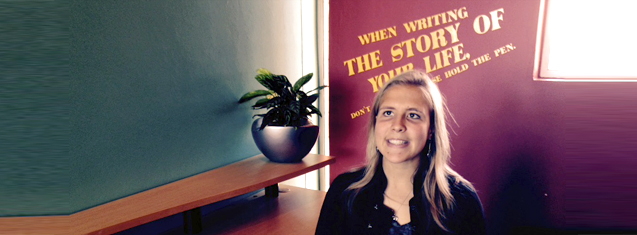Latest News Archive
Please select Category, Year, and then Month to display items
12 October 2020
|
Story Arina Engelbrecht
|
Photo Supplied
 Arina Engelbrecht from Organisational Development and Employee Well-being believes physical activity has a number of benefits for one’s health, including stress relief.
Arina Engelbrecht from Organisational Development and Employee Well-being believes physical activity has a number of benefits for one’s health, including stress relief.
Being physically active plays a big role in preventing the development of mental-health problems and in improving the quality of life of people experiencing mental-health problems.
Treatment for depression
Physical activity can be an alternative treatment for depression. It can be used as a stand-alone treatment or in combination with medication and/or psychological therapy. It promotes all kinds of changes in the brain, including neural growth, reduced inflammation, and new activity patterns are formed that promote feelings of calm and well-being. It releases endorphins – powerful chemicals in the brain that energise your spirit and make you feel good.
Physical activity can be very effective in relieving stress. Research in adults has found that physically active individuals tend to have lower stress levels compared to individuals who are less active. It also leads to improved sleep. When a person sleeps better and feels more rested, overall quality of life improves. They cope better with daily life stressors.
Reduce Alzheimer's risk
Regular physical activity can reduce your risk of developing Alzheimer's disease by up to 50%. It can also slow down further deterioration in those who have already started to develop cognitive problems. It stimulates the brain’s ability to maintain old connections as well as to make new ones.
A study asked people to rate their mood immediately after periods of physical activity (e.g. going for a walk/run, cycling, doing housework) and periods of inactivity (e.g. reading a book or watching television). Researchers found that participants felt more content, more awake, and calmer after being physically active compared to after periods of inactivity.
In conclusion, people who are physically active feel a sense of well-being, feel more energetic throughout the day, sleep better at night, have sharper memories, and feel more relaxed and positive about themselves and their lives.
“Being physically active not only changes your body, it changes your mind,
attitude, and your mood.” – Arina Engelbrecht
A woman with a vision and dreams
2014-09-19

Louzanne Coetzee recently made Kovsie -history when she became the first blind woman to be elected to the SRC in the portfolio for Student Accessibility and Support. She has not even considered standing for the SRC before, though.
“I wanted to create awareness of disabled students on campus,” Louzanne says. “By running for SRC and this specific portfolio, I thought it would be a great way to do so.” She has a lot of ideas on how to make the portfolio function better and to link the accessibility and support braches of the portfolio.
Louzanne has a passion for leadership. “I think this is a great platform for me to live out my values.” She describes herself as dynamic, but admits that she often pushes herself very hard to achieve the goals she has set out for herself. “I’m also very competitive. But I believe I can make it work to my advantage by setting goals regarding my leadership position on campus to make them happen.”
Having won several gold medals at athletic track events, Louzanne also aims to be selected for the South African 2016 Paralympics team.
And the one dream after another coming true for her, arises from a firm belief in the right attitude.
“I believe that with one’s attitude one can achieve anything. My personal motto has always been ‘mind management is life management’. One of the greatest lessons I have ever learned is that everything is determined by your attitude. The latter determines how you live your life and handle situations.”